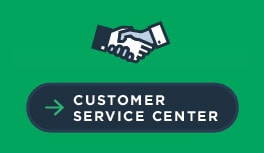Staffing and Training
Find resources to help staff your CDC-recognized lifestyle change program and ensure lifestyle coaches get the training they need to be successful.
Staffing Your Lifestyle Change Program
You will need a staff member to fill the following roles in your lifestyle change program:
- Lifestyle coach to lead the lifestyle change program sessions and support and encourage participants
- Program coordinator to oversee daily operations of the lifestyle change program, support and guide lifestyle coaches, and ensure that the program meets quality performance outcomes
- Data preparer to collect and submit data to CDC. Learn about the requirements for data reporting.
In large programs that serve many participants, each of these roles is typically filled by a different person. Some large programs even have more than one coach and coordinator. In smaller programs, one person may fill all three roles.
Consider identifying individuals already in your organization, or affiliated with it, who would be well-suited for these positions.
The CDC Recognition Program Standards and Operating Procedures [PDF – 2 MB] offer position descriptions for lifestyle coaches and program coordinators, which outline desired skills and qualifications. You can use these position descriptions to recruit program staff, if needed.

Lifestyle change coaches are trained to use a CDC-approved curriculum and have the knowledge and skills needed to effectively deliver the program.
Training for Your Lifestyle Coaches
CDC-recognized lifestyle change programs must have Lifestyle Coaches who are trained to use a CDC-approved curriculum and who have the knowledge and skills to effectively deliver the program. The Lifestyle Coach’s ability to support participants, provide guidance, and help groups work together effectively is essential for a successful lifestyle change program.
If your organization needs training for your Lifestyle Coaches, there are currently 11 different training entities that can help. They have signed a memorandum of understanding (MOU) with CDC to provide training. Some of these training entities can also provide training for Master Trainers.
To learn more about these training entities and the types of trainings they offer, visit the Customer Service Center (CSC).
At this time, CDC is not accepting applications from new training organizations wishing to sign an MOU as a National DPP Lifestyle Coach training entity. The current group of training entities has extensive experience and sufficient capacity to meet the existing and projected demand for training Lifestyle Coaches. However, on a very limited basis, we will consider applications from training organizations that have extensive experience training coaches to serve priority populations (i.e., racial and ethnic minorities and people with disabilities). In these cases, we will require that the applicants engage first in discussions with at least two of the existing training entities that hold MOUs with CDC to determine if the training gaps can be better met through a partnership opportunity.
